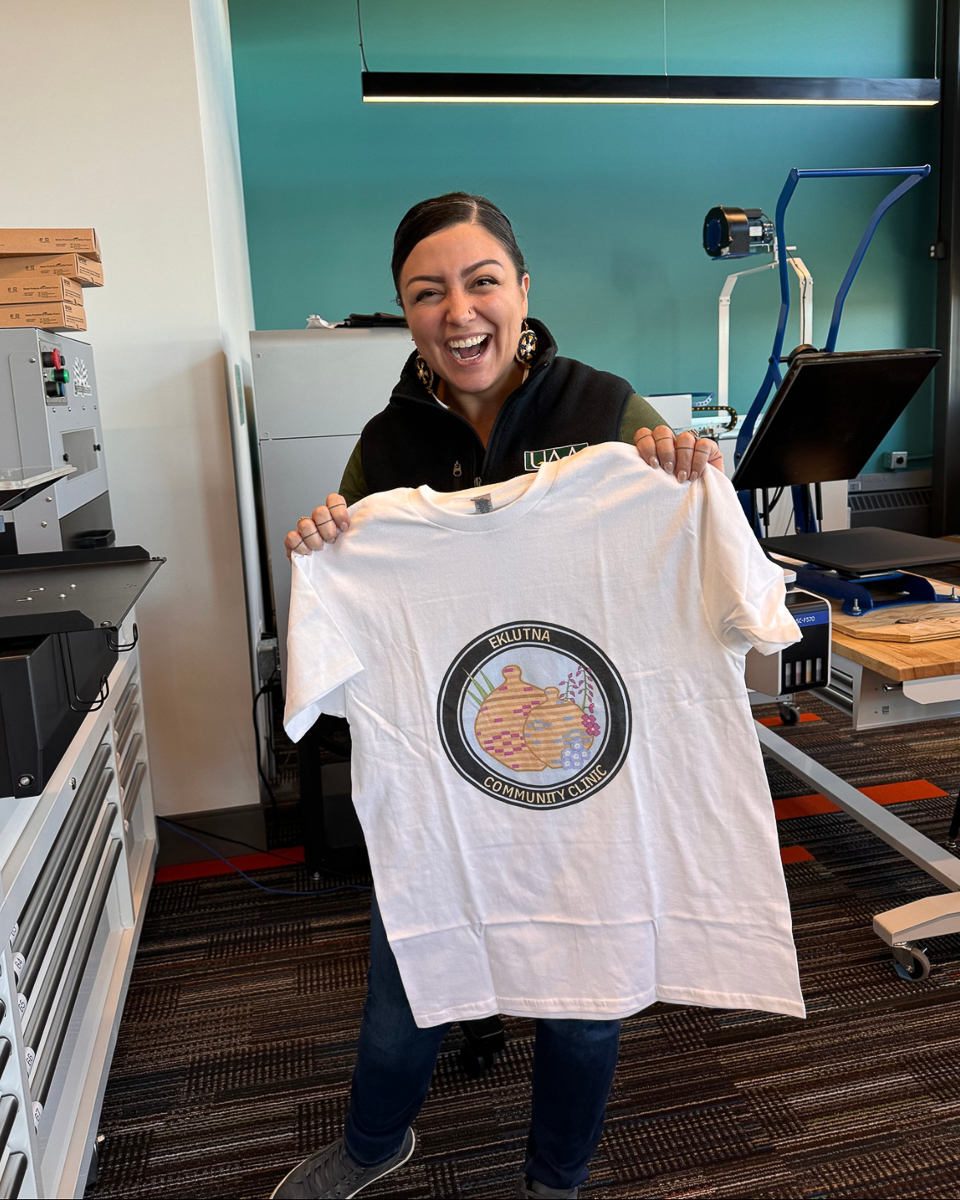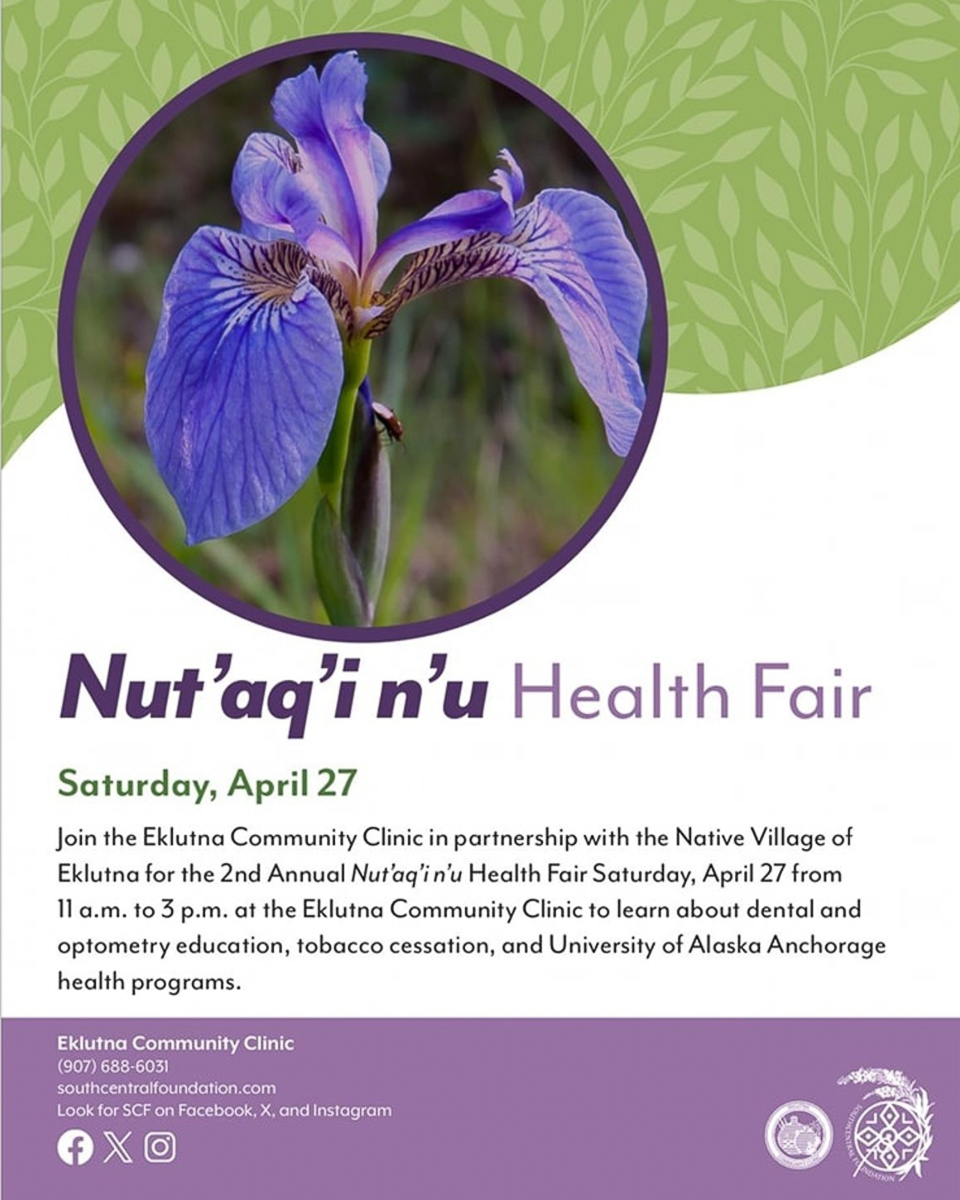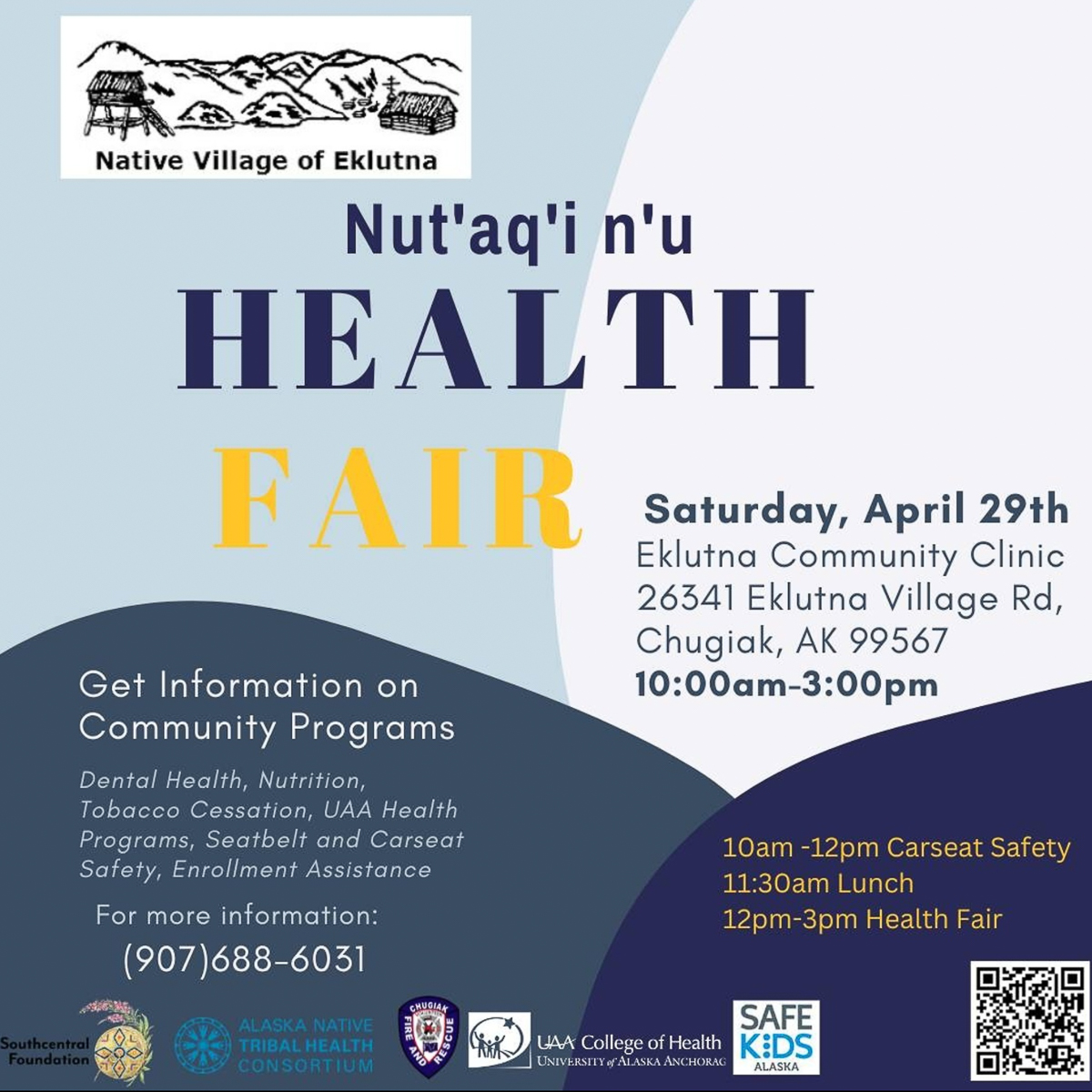Eklutna Tribal Health Board Collaboration
By Jessica Ross, Nughejagh Founder
 The Native Village of Eklutna is a small Dena’ina village located approximately 21
miles north of Anchorage, Alaska. Although small and residing in the most populated
area within Alaska, Eklutna maintains its spiritual connection to the earth and resilience
against assimilation efforts made by the colonizing nations that have set root here.
The Native Village of Eklutna is a small Dena’ina village located approximately 21
miles north of Anchorage, Alaska. Although small and residing in the most populated
area within Alaska, Eklutna maintains its spiritual connection to the earth and resilience
against assimilation efforts made by the colonizing nations that have set root here.
Eklutna also holds a special place in my heart, as it is the village of my tribe. My family. And like Eklutna, I have had to hold fast against the efforts to tear me down and conform to ideologies that did not fit my nature. The Eklutna Native Village government was organized in 1961 by the traditional people of Eklutna Village in order to be recognized for protecting land rights. By then, the 326,000-acre Eklutna Reservation had been reduced over the years to a mere 1,819 acres.
The tribe became federally recognized in 1982. Eklutna now holds a political system that includes seven tribal council members that serve 3-year terms each, a judicial system that includes five traditional rule keepers(or judges) who are chosen by each prominent clan family, and an executive branch that includes a tribal council president, vice president, secretary, and treasurer. Eklutna also has a tribal administrator who plays a huge role in overseeing the everyday operations of the tribe.
I have had the honor of serving as a Native Village of Eklutna Tribal Health board member since 2021. Throughout this time I've worked closely with other board members and other tribal health organizations such as Southcentral Foundation and Alaska Native Medical Center in discussing and developing plans for expansion and inclusive activities, such as the first annual Nut'aq'i n'u Health fair that took place in April of 2023. In May of 2023, I had the privilege of representing both UAA and the Native Village of Eklutna's interests at the National Tribal Health Conference that took place at the Dena'ina Center in downtown Anchorage from May 1st through May 5th, 2023.
As of June of 2023, I was appointed Vice Chair of the Native Village of Eklutna Tribal Health Board, which will allow me the ability to co-lead our tribal health board in developing plans to serve our tribal community by providing culturally responsive and trauma-informed approaches to healthcare. While further developing the Culturally Responsive and Trauma-Informed care curriculum in my work in the Dental Hygiene program, I wanted to create an opportunity for dental hygiene students to get to experience what it was like to work in a small tribal clinic.
Initially, my goal was to have clinical rotations for the dental hygiene students, but as we were still recovering from the Covid-19 pandemic, leaving restraints and restrictions on policies for rotations.
I met with the tribal health board and other organizations on having community event - a health fair- for health professionals, educators, and tribal community members to come and learn about all of the services the Eklutna Community Clinic offers as well as provide an opportunity for health students to meet tribal members and offer them educational materials and advice through the engagement in fun activities that the students had come up with. The first "Nut'aq'i n'u Health Fair" was a huge success, and brought forth much awareness on health, the clinic, and the university's offerings in education! The Eklutna tribal health board and Eklutna Community Clinic have all agreed that the health fair will take place annually.
Prior to joining the Tribal Health Board, I was reluctant to get involved in my tribe (as it meant I would have to face triggering encounters that would stir up pains of the past). I have found, however, the more I connect with my people, the better I seem to feel. The more healing I experience.
The community has always been an important aspect of our culture. The community (the tribe) came before the self, always. This sense of community has been tested over the centuries of enslavement, colonization, war, assimilation efforts, and (more recently) the Covid-19 pandemic. With recent efforts of the tribal government and my work with the Nughejagh project, I am hopeful that our tribe will be able to grasp onto this aspect of our culture and experience the healing that I have had the privilege to experience.












